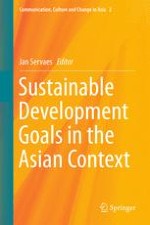2017 | OriginalPaper | Buchkapitel
Religious Environmentalism and Environmental Sustainability in Asia
verfasst von : Anthony Le Duc
Erschienen in: Sustainable Development Goals in the Asian Context
Verlag: Springer Singapore
Aktivieren Sie unsere intelligente Suche, um passende Fachinhalte oder Patente zu finden.
Wählen Sie Textabschnitte aus um mit Künstlicher Intelligenz passenden Patente zu finden. powered by
Markieren Sie Textabschnitte, um KI-gestützt weitere passende Inhalte zu finden. powered by
